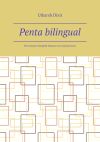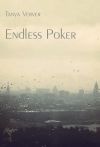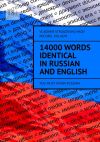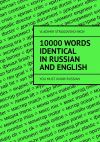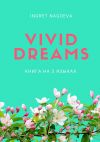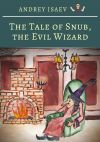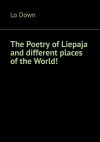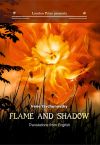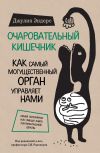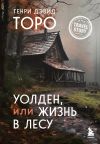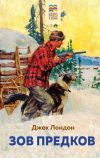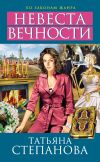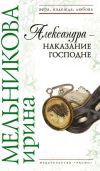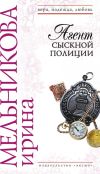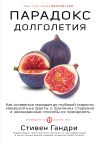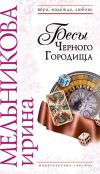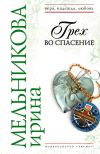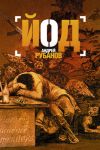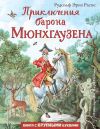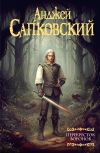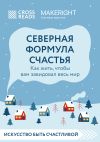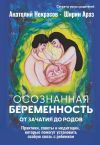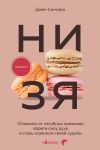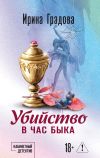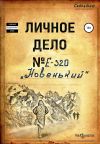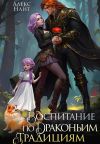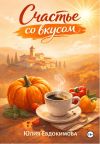Читать книгу "Зимородок"
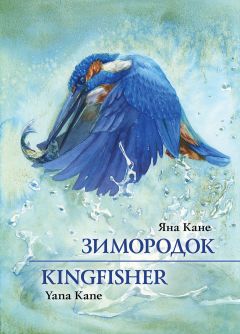
Автор книги: Яна Кане
Жанр: Поэзия, Поэзия и Драматургия
Возрастные ограничения: 16+
сообщить о неприемлемом содержимом
Яна Кане
Зимородок
Стихотворения
Yana Kane
Kingfisher
© Быков Дм., предисловие, 2020.
© Кане Я., текст, 2020.
© «Геликон Плюс», оформление, 2020.
* * *
Предисловие
Яна Кане начала писать стихи еще в России, посещала в Петербурге ЛИТО Вячеслава Лейкина, но потом, в возрасте 16 лет, переехала в Штаты и правильно сделала. Не потому, что в Штатах лучше, а потому, что традиция ее поэзии – американская, метафизическая, и верлибр у нее органичен, хотя и рифмованным стихом, как вы увидите, она владеет вполне. Русская поэзия отягощена бытом и социальностью, а Яна Кане предпочитает всего этого не видеть или по крайней мере на этом не фиксироваться. Ее интересует тонкая грань между сном и бодрствованием, между агностицизмом (не безверием конечно) и верой, между стихами по-русски и стихами по-английски (они пишутся явно одним и тем же человеком, но в двух различных состояниях). Как сформулировала она сама – перевожу прозой и в строчку, – «На этом языке я беседую, спорю, флиртую с мужем, учу или развлекаю дочь, общаюсь с подругами из колледжа, отчитываюсь на конференциях, докладываю шефу, здороваюсь с соседями. А на ТОМ языке – я прислушиваюсь к шепоту призраков, их неспешной беседе, скользящей своей неизменной орбитой».
Это, конечно, несколько принижает английский: «свойственные английскому тонкие недоговоренности, поэзия мысли, мгновенная перекличка между отвлеченнейшими понятиями, роение односложных эпитетов, все это, а также все, относящееся к технике, модам, спорту, естественным наукам и противоестественным страстям – становится по-русски топорным» (Набоков). Но для Яны Кане именно русский – язык отвлеченностей, памяти, темных интуиций о Боге. Ее английские стихи написаны женщиной умной и проницательной, русские – женщиной чуткой и понимающей много больше, чем она хочет выразить по-английски.
Это двойное существование («на пороге как бы двойного бытия», как писал Тютчев, вероятно, самый близкий ей поэт) – первый такой случай в литературе. Большинство билингвов, переходя на другой язык, остаются собой. Кане по-английски – это другая личность с другой памятью. Но все это написано на русском холсте, на котором – русская почва, глина (название весьма важное и откровенное), русское подсознание и русские догадки о Боге. Именно религиозность Кане – ничуть не церковная, тем более не сектантская, – вписывает ее в традицию Тютчева, Тарковского, Заболоцкого; именно этот круг авторов – названных или не названных в эпиграфах, – определяет ее поэтику и темы.
Поэзия не нуждается в предисловиях, оправданиях и пояснениях. Кане – сложившийся поэт, сумевший из своей драмы сделать лирическую тему и превратить эту драму в факт литературы. А поскольку таким двойным бытием отягощены уже тысячи наших соотечественников, – бывших, или вернувшихся, или живущих на две страны, – эта книга будет востребована, прочитана и многим облегчит душу.
И это первый случай, когда я не жалею о том, что талантливый поэт уехал из России. Собственно, он эмигрировал в литературу, а это лучшее, что можно сделать с собой.
Дмитрий Быков
Introduction
Yana Kane began to write poetry while still living in Russia. She was a student in Vyacheslav Leikin's poetry workshop in St. Petersburg. At the age of 16, she relocated to the United States, which was the right thing to do. Not because it is better in the States, but because the tradition of her poetry is American – it is metaphysical, and free verse comes naturally to her; although, as you will see, she has a mastery of rhymed verse. Russian poetry is burdened by the struggles of everyday life and by societal concerns. Kane prefers not to see all of this, or at least not to fixate upon it. She is interested in the subtle border between dreaming and lucidity, between agnosticism (not unbelief, of course) and faith, between poetry in Russian and poetry in English. Her poems in the two languages are clearly written by the same individual, though in two different states of mind. As she herself formulated:
In this language,
I converse, argue, and flirt with my husband,
Teach and amuse my daughter,
Stay in touch with friends from college,
Confer with my colleagues,
Report to the boss,
Say hello to the neighbors.
In that language,
I listen to the voices of ghosts.
Their unhurried conversation
Glides along its immutable orbit.
This, of course, underrates English somewhat. Nabokov wrote: “…the subtle understatements so peculiar to English, the poetry of thought, the instantaneous resonance between the most abstract concepts, the swarming of monosyllabic epithets – all this, and also all that is related to technology, fashion, sports, the natural sciences, and the unnatural passions – in Russian become clumsy (rough-hewn)”. But for Yana Kane, it is Russian that is the language of abstractions, of memory, of dark intuitions about God. Her English poems were written by an intelligent and insightful woman; the Russian ones were written by a woman who is attuned to a lot more than she wishes to reveal in English.
This double existence (“as though at the verge of double being,” to quote Tyutchev, whose poetry probably is closest to hers) is the first such case in literature. Most bilingual writers remain themselves when moving to another language. Kane in English is a different person with a different memory. Yet all of this is painted on a Russian canvas; grows from Russian soil, from clay (a word that occurs repeatedly in her poetry, which is important and revealing); from the Russian subconscious and Russian intimations of God. It is Kane’s religious sensibility – not at all church-based, and even more definitely not sectarian – that places her poetry into the tradition of Tyutchev, Tarkovsky, Zabolotsky; it is this circle of authors that determines its poetics and themes.
Poetry needs no introduction, justification or explanation. Kane is a mature poet who has found a way to draw a lyrical theme out of her drama and to transmute this drama into literary fact. Since by now thousands of our compatriots – former, returned, or living in two countries – are burdened with such a double being, this book will be in demand, it will be read, and it will lighten many a soul.
This is the first case in which I do not regret that a talented poet left Russia. She emigrated into literature. And that is the best thing you can choose to do with yourself.
Dmitry Bykov
Зимородок / Kingfisher
Зимородок
Зимородок живёт в трёх стихиях. Гнездо – нора в земле. Пропитание птица добывает подводной охотой. А странствия – это полёт.
Яна Кане – человек, обитающий в трёх стихиях. Она обрела литературный голос на английском языке, но не утратила русский язык, не оборвала связь со своим наставником, Лейкиным, с кругом общения, в который вошла благодаря участию в его студии. По профессии Кане – статистик. Она так обозначила связь между своей профессиональной и литературной деятельностью: «Поэзия и статистика – это два разных языка, на которых я говорю о том, что структура и неопределённость в равной степени присущи нашему существованию».
Kingfisher
A kingfisher lives in three different elements: it builds its nest by digging a tunnel in the earth, travels by flying, feeds by diving and swimming to catch fish.
Yana Kane inhabits three domains: Russian poetry, English poetry, and statistics. She grew up in the Soviet Union and began to compose poetry as a child. She came to the US as a refugee at the age of 16. Her poems and translations in Russian and English appear in anthologies and magazines in the US, Russia, and Western Europe. She holds a bachelor’s degree in engineering from Princeton University and a Ph. D. in Statistics from Cornell University. She works as a statistician. For Kane, poetry and statistics reflect both the structure and the uncertainty of our existence.
Посвящаю с любовью моей семье: Аде и Зиновию (Жене) Кане, Брюсу Эсригу и Ариели
и с благодарностью – моим учителям: Вячеславу Лейкину, Стелле Вербицкой, Профессору Эллен Чансес, Крейгу Келлер, Мастеру Ченг Хсианг Ю, Сенсею Грегу О’Коннор, Роберту Фридману
и членам важных для меня сообществ: Миллбурнского клуба, Beth Hatikvah synagogue, the Aikido Centers of New Jersey, Madison Studio Yoga, the Arts by the People program.
Я признательна Брюсу Эсригу, который помог мне отредактировать англоязычные тексты, проявив при этом свойственные ему вдумчивость, остроумие, любовь к слову (а также пристрастие к точке с запятой).
Искренне благодарю Рашель Миневич, Эда Побужанского и Александра (Сашу) Казакова за полезные советы и ценные замечания.
Я рада, что Анастасия Шеперд стала моим партнёром в литературной игре, которую мы назвали «Странники в странном мире». Часть этой игры вошла в цикл The Age of discovery.
With love to my family: Ada and Zinovy Kane, Bruce Esrig and Ariel
With gratitude to my teachers:
Vyacheslav Leikin,
Stella Verbitskaya,
Professor Ellen Chances,
Craig Keller,
Master Cheng Hsiang Yu,
Sensei Greg O’Connor,
Robert Friedman,
to the communities of the Millburn Club, Beth Hatikvah synagogue, the Aikido Centers of New Jersey, Madison Studio Yoga, and the Arts by the People program.
Acknowledgements
I am grateful to Bruce Esrig for editing the English language texts. He brought to this task his penchant for deep thought, his playful sense of humor and his love of words and of semicolons.
I want to thank Rashel Minevich, Ed Pobuzhansky and Aleksandr (Sasha) Kazakov for insightful comments and valuable suggestions.
I am glad that Anastasya Shepherd is my co-creator of the literary game we called “Travelers in a strange world”. This game is great fun to play, and it inspired “The Age of discovery”.
Metamorphosis
English language poems
Metamorphosis
What I used to think of
As myself
Turned out to be
A chrysalis.
Now it has split open.
An old woman is slowly emerging.
She will wait patiently
For her crumpled rags to unfurl,
For the sun to harden them
Into wings.
Ripening
My little daughter wakes in tears:
She fancies that her bed is drawn
into a dimness which appears
to be the deep of all her fears
but which, in point of fact, is dawn.
Vladimir Nabokov
Not life or death,
Creation or its fall,
Not good or evil,
But the whole, the all —
This fruit of knowledge
Is still dim, still green.
The ripening of dawn
Remains unseen.
The soul does not yet trust
The sense of sight,
Still hides in terror
From the kindling light.
It’s here, though each glimpse of it is brief,
It’s here, the lambent glow of joy and grief.
The Age of discovery
1. Indra’s netAm I reflections of the world or the mirrors reflecting it?
Anastasya Shepherd
One story of this world
Begins with “Let there be light”.
I do not think that punctuation
Had been invented
When these words were first recorded.
But judging from what follows,
An exclamation mark
Should cap that sentence.
But what about Indra’s net?
What are the words
That first emitted and still carry
The light that knits it into one great whole?
What punctuation should we use?
A question mark seems most fitting.
You and I, like everybody else,
Are both:
Jewels linked into a net
And reflections bouncing within a hall of mirrors.
But let us not get trapped.
We have the power to play it
Like a game, a dance,
A laugh-inducing tickle.
2. VoyagersЯ список кораблей прочёл до середины
Осип Мадельштам
…The list Of soaring ships I’ve read up to the middle.
Osip Mandelstam (translated by Alex Sitnitsky)
Wake up! Wake up!
There is a porthole, a port, a portal,
A momentary gap
Right here,
Where the past
Meets with the future.
A dawn breeze is rising.
You can glimpse the swaying masts,
The white sails being hoisted.
You can hear the seagulls laughing,
The lines groaning, singing,
Taut with force
Ready to propel the ship.
Let us arise and cross the threshold,
Let us run
To where the land and the water
Meet.
It is for us to name the vessel,
To unfurl the flag,
To set course
Across an uncharted sea.
3. ExplorationIt's a strange world,
made of echoing emptiness
pulling itself together…
Anastasya Shepherd
To blossom into being
A new world needs travelers.
Now we are here,
Calling out to each other:
“Look!”, “Did you hear that?”,
“This feels just like…”
“Watch out!”, “Where does this…”,
“Well done!” “What if?”
Now we are here,
Exploring with all our senses:
Humor, awe, dread, irony, appreciation, wonder.
When we gaze up
Celestial bodies
Flare into existence,
Dance with each other.
Flocks wing across the sky,
Swarms billow over bogs,
The air comes alive
With singing, buzzing, courting, hunting, pollinating.
Each step we take tells us
What is underneath our feet:
Grass, ice, rock,
A swaying bridge above the mist
That rises from the chasm
To cling to our ankles.
I do not know how far
We are destined to travel.
But I trust this world
To keep unfolding space and time
For our journey of exploration,
For as long as we are here.
4. Siren song…you will come to the Sirens who enchant all who come near them.
Homer (translated by Samuel Butler)
Sirens have two kinds of songs
To lure those who come near them,
To bind the minds of travelers
With snares of longing.
Songs of adventure and of glory,
Of giving names
To new lands, to new creatures.
These songs promise freedom
From the tedium
Of familiar words,
From the confines
Of the cradle, the field, the hearth,
From the gray stones of the graveyard,
From the moss that steals over the names
Of a long line of ancestors.
Songs of warmth,
Of embracing arms and sheltering walls.
These songs promise to turn
The terrors, the regrets
Of past voyages,
The uncharted vastness of the future
Into words, into lusty tales
That can be traded
For a hearty tankard of ale
A seat close to the fireplace,
The eager gaze of a rapt listener.
5. Nightmares and their ridersI have nightmares now.
I dream that something happened to you…
Anastasya Shepherd
A nightmare is a kind of horse:
A powerful creature, wild and willful.
Approach her with respect, with skill,
For she may bite, kick or rear;
She may leave the one who dares to touch her
Broken, paralyzed, dead.
Yet she is capable of learning to accept a rider.
Balancing on the back of a nightmare,
Riding a dark dream,
We can leap much farther than is humanly possible.
A nightmare can carry us across an abyss.
6. Trains and their dreamersThe train stitches together images,
like a demented alliterating seamstress…
Anastasya Shepherd
The distant clatter
Of the predawn train
Quilts the quiet air,
Pulls the thread of the whistle
Long, long, l-o-ong
Through the mist.
Between sleeping and waking
I dream.
I piece together
Stations, timetables, tickets
To choose my own destination,
To fashion a different self.
7. SynaesthesiaThere are times in life when synaesthesia becomes inescapable,
when water smells like lead and feels blue…
Anastasya Shepherd
Escape is possible.
Search the floor of your perception,
Feel for the hidden trapdoor,
The moment of synaesthesia.
Pry it open,
Heave it up on its rusty hinges.
Plunge into the blue.
Roll up, solid, dull,
Like a ball of lead.
Sink through the water,
Pass through the gradations
Of the shimmering light
Deepening into darkness,
As the shadows thicken.
Let go of all
That has been visible.
Feel the weight of the ocean
Press you to the bottom.
Smell your own fear.
Taste the bile of loss.
Rise, rise like an air bubble.
Push through the cool resistance
Until you are released,
Until you burst into nothingness.
Let the freedom of empty space
Flood your senses with joy.
8. The Age of DiscoveryYou make choices.
Those choices make you.
Then you make choices.
Always a spiral – upwards or downwards – it's your choice.
Anastasya Shepherd
Having circumnavigated our world,
I realize that it is not a sphere,
But a spiral.
I am back where I started from.
The path ahead is as unknown
As it was before the journey.
But you, my friend,
Who steadfastly stayed here
At the origin,
How did you find out?
Or was it clear?
Was it clear all along?
Theological Questions
Circling the pulsing center of their universe
The fish are passing through sunlight and shadow.
Their existence is framed, circumscribed, and protected
By the carved marble rim of the fountain’s basin.
Do they fear or worship the hand that feeds them,
Removes their dead, repairs the stonework;
The hand that brought their ancestors here
From another world in a wooden bucket?
Can they see that the hand moves more slowly now,
That the bony fingers have grown stiff with age?
Portrait of a room
Now, as a human life in this room
Is ebbing,
The attitudes of the objects
Become apparent.
The rocking chair
Stretches forth its arm-rests,
Ready to embrace, to lull,
To enthrall with the stories
Of a long life-time.
The mirror turns a blind eye
To all that is happening here,
Gazing intently
Into its own distant dreams.
The hospital bed knows
That it is seen as ugly,
Unwanted in every room that it enters.
Yet it goes about its work
Reliably and with care,
Keeping the patient
As comfortable as it is able.
It does its best to be unobtrusive.
The edge of the crystal vase
Glitters hard in the corner.
Being confined to a sick-room,
Enduring the dusty monotony
Of pathetic fake flowers —
This is not what it’s made for!
The curtains hold back the darkness,
Soften the mid-day light.
Catching the slightest motion of the air,
They stir like wings,
Like the white sails of a ship,
Sensing the wind, the space
Of a great invisible world.
Orbit
The Earth falls towards the Sun.
There are no elephants, no turtles,
No hand of Providence
For the world to rest on.
What keeps the planet in orbit
Is its unwavering observance
Of “the laws of nature”.
But what is inside those words?
Dead force?
A command backed by fear?
A solemn promise given long ago?
Or a bitter-sweet journey
On a freely chosen path?
Creation stories
To Orna Greenberg
In the story
Of the first creation
The Divine power
Lifts the supple clay,
To mold His image,
To imprint Her likeness.
The Divine breath
Enters the human shape,
Calls it to life.
The potter’s hands
Explore a lump of clay,
Stroke, press in
The hollow of the vessel,
Form the plump lip,
Extend the graceful neck.
The artist dips the brush
Now into paint, now into water.
An image blossoms:
Ocher and sienna blend;
The colors thicken —
Shadows outline the round rim,
The colors thin —
Light curves down the glazed flank.
You
Lift the clay jar,
Gaze at the painting,
Read these lines,
You
Have the power
To breathe into a creation
Awareness, thought, meaning,
Life.
Creation
It is possible to escape,
To hide from the darkness:
Squeeze your eyes shut,
Press hard on the eyelids.
Circles of phantom fire
Will blaze in front of your staring pupils.
Let us trade: I would barter
My past, my memory,
For a handful of stars,
For the dimmest of constellations…
But you drive a hard bargain
By simply refusing to exist.
In a blind rage
I splinter my heart into kindling,
Pour gasoline,
Set the whole mess aflame,
Watch as it burns to ashes.
But it keeps on beating,
It keeps on beating in the darkness.
There is nothing to do but sit.
Stare into the void.
Read the blanks on the empty page,
Over and over,
Till they form a pattern,
Till the repetition yields a meaning:
“Let there be darkness, for there is.”
There is darkness.
There is darkness.
There is darkness.
All there is, is darkness.
Until slowly, slowly
Contours form,
A faint outline emerges:
“Let there also be light.”
Realities
we create a thin veneer of simplicity and predictability
over terrifyingly unmanageable chaos
and call it reality.
Anastasya Shepherd
We call it reality
And consider the matter settled,
So we can turn our attention to
Making sandwiches for the school lunchbox,
Submitting the quarterly forecast report,
Walking the dog,
Writing the thank you note.
At least, that is how it is
For some of us,
Some of the time.
We collect data about it,
Quantify the uncertainty
Of our measurements,
Publish papers in academic journals.
We put ironic quotation marks
Around its edges,
Take selfies.
We blaze with anger about what it is,
Emblazon on our banners
What we want it to be.
We split into tribes, go to war,
Mangle and kill each other
Under the pretext
That there is one right way,
One right answer to every question
About the definition
Of a pin, a dance, an angel;
About the way to count how many…
We beat our heads against it,
Search for the path, the mantra, the koan,
Meditate, keep diaries,
Create sand mandalas of great beauty,
Sweep all the colors together,
Let the river carry them away
As we fall into insanity,
Rise to enlightenment,
Or the other way around.
We pick it up like a toy, a ball.
We run across sunlit grass,
Laughing,
Tossing it back and forth.
We forget it in the gathering dusk
Under the lilac bushes.
It is time to go back in,
To get some sleep.
At least, that is how it is
For some of us,
Some of the time.
